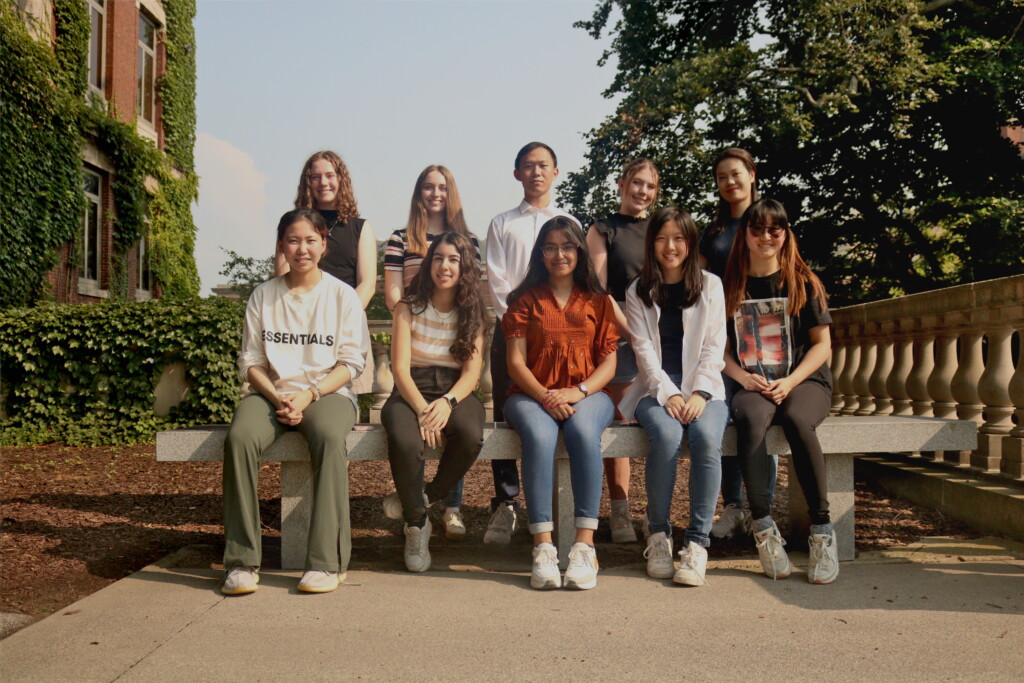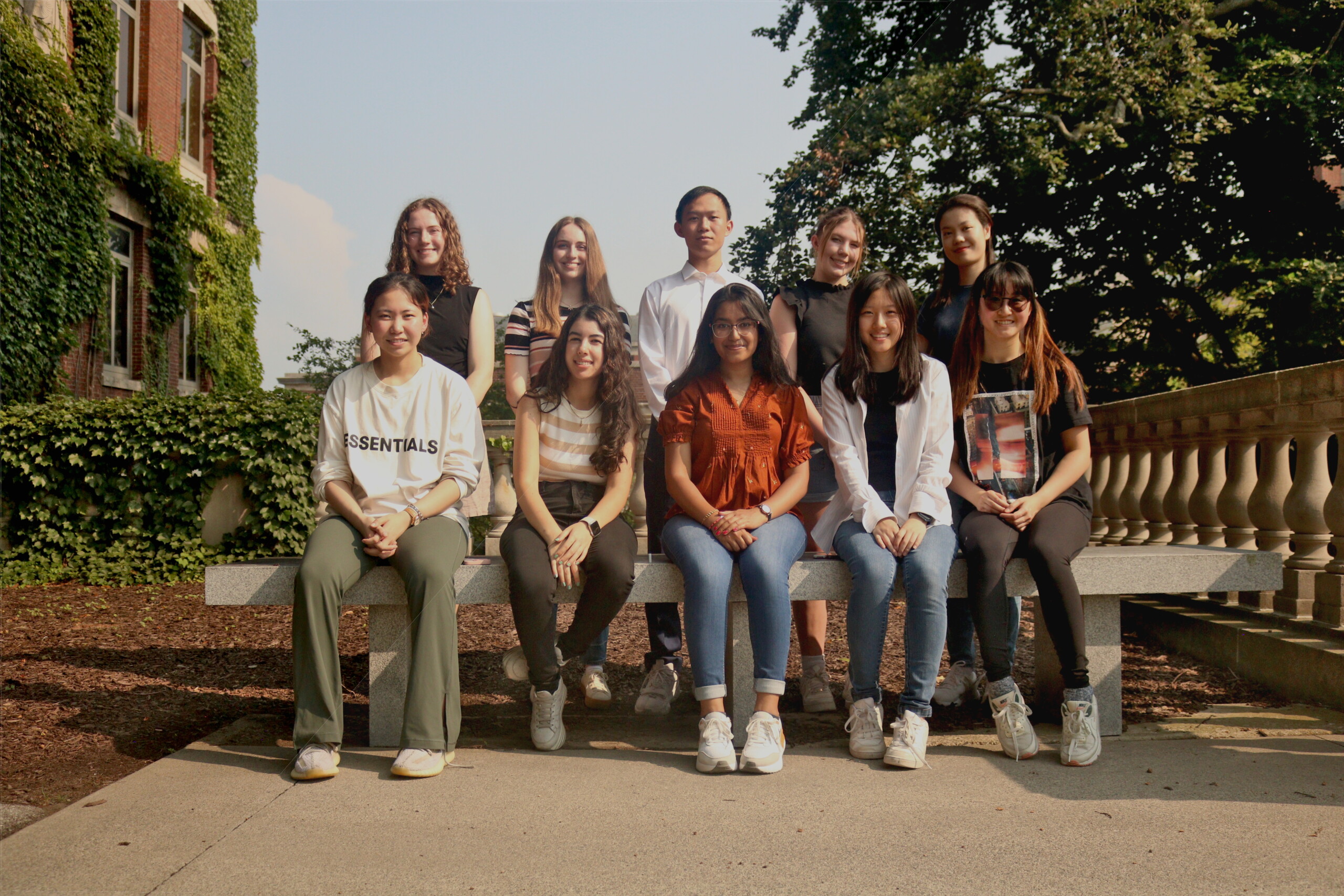In just under two months, a dynamic group of 10 undergraduates from the University of Rochester will embark on a journey to Paris to unveil the culmination of a year’s worth of effort. Their destination: the renowned International Genetically Engineered Machine Competition (iGEM), a competition that pushes for the advancement of synthetic biology to address global challenges.
This annual competition spurs teams from around the world to design, construct, test, and evaluate innovative systems using interchangeable biological components and established molecular biology techniques.
Every year, the University’s iGEM team — led by faculty advisor Dr. Anne S. Meyer — takes on a different project. This year, the new team, Team RoSynth, is preparing to introduce a 3D bioprinter project which aims to address conservation issues concerning the intense demand of endangered botanical compounds for pharmaceutical use.
Engineered to 3D-print gels laden with a bacteria and yeast co-culture system, this revolutionary technology synthesizes rosmarinic acid (RA). Often harnessed for its antioxidant and anti-inflammatory properties in various commercial applications, RA’s extraction has historically been both laborious and inefficient.
“Team RoSynth is engineering a biosynthesis system for optimizing the production of in-demand plant-derived drugs,” the team’s website states. “Our workflow will be especially effective for drug production processes requiring copious amounts of labor and limited by plant availability.”
Specifically, the team engineered bacteria and yeast to synthesize plant compounds. However, if bacteria and yeast are both used for synthesis, the bacteria inevitably outcompetes — or kills — the yeast. Thus, Team RoSynth is employing a parallel culture system that compartmentalizes each to aid in more efficient synthesis.
“You have yeast and bacteria growing in separate hydrogels, kind of like gelatin,” junior and team leader Elizabeth Martin said, “and they work together to synthesize the molecules.”
The team is responsible for feeding glucose into the system to allow the synthesis of RA through metabolic pathways involving both organisms together.
However, the team’s approach offers an alternative to the traditional extraction method. The parallel culture system not only increases RA production but also promises cost efficiency.
“What we are doing is taking the genes that are native to the synthesis pathway and put half of those genes into our bacteria and the other half to our yeast,” senior Arianna Slupik. ”That way, we are just kind of lining up this metabolic pathway between them.”
The focus of the project isn’t necessarily RA itself, but rather a proof of concept to show that the dual-organism system can be used effectively and efficiently in the printing process, which automates an otherwise laborious and potentially human error-laden process of biomanufacturing.
The journey to this point involved extensive time and effort from all team members. According to Martin, the record for the team of the longest time spent in the lab is just past midnight — after arriving at 9 a.m. that prior morning. This includes work spent doing lab work as well as the promotion, marketing, fundraising, and outreach work for the team, which is all done in house. “It’s a lot of work,” said Martin. “It really is.”
Editor’s Note: Managing Editor Allie Tay was not involved with the editing of this piece as a result of being on the iGEM team.
Editor’s Note (9/1/23): The quote by Arianna Slupik was revised in communication with the iGEM team on September 1, 2023 as a result of misquotation during initial publication.


